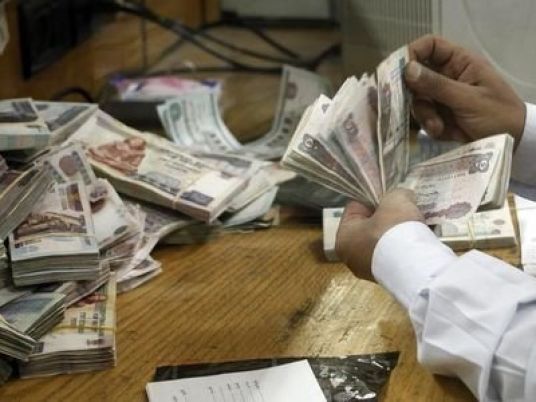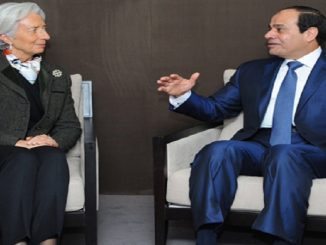
Foreign investors fleeing emerging markets following Russia’s invasion of Ukraine have sold around $1.19 billion of Egyptian treasury bonds in just three days, with activity in the secondary market continuing on Tuesday, according to Reuters.
The war in Ukraine has left Egypt facing higher costs for its substantial wheat import needs as well as a loss in tourism revenue from Russian and Ukrainian visitors to Red Sea resorts.
Investors have been paring their positions in Egypt since the Feb. 24 invasion, reflecting concerns about Egypt’s wide current account and budget deficits and exposure to possible U.S. Federal Reserve rate hikes, bankers say.
They say that investors fear their holdings would lose value should Egypt be forced to devalue its currency.
Analysts at investment bank JPMorgan estimated on Tuesday that the Egyptian pound was more than 15% overvalued and would have to be sharply devalued — even more than its earlier forecast.
The currency on Tuesday was trading at about 15.72 to the dollar.
“We now see the USD/EGP at 17.50 by end-22 from 16.3 previously,” the analysts said.
Non-Egyptians on Tuesday sold treasury bonds worth 5.79 billion Egyptian pounds ($369.73 million) after having sold 7.79 billion pounds on Monday and 5.10 billion pounds on Sunday, according to stock exchange data.
The stock exchange does not report figures for sales of treasury bills, which have a maturity of one year or less. Bankers say foreigners have also been selling these shorter maturities.
“Should market conditions continue to deteriorate, there is a reasonable possibility that Egypt may resort to IMF assistance for balance of payments financing purposes,” JPMorgan said.
Egypt’s hard-currency sovereign bonds have also come under pressure with many longer-dated issues trading at or near record lows of 63 to 66 cents in the dollar.
The premium demanded by investors to hold Egypt’s dollar bonds over safe-haven U.S. Treasuries rose to a record high on 980 bps, while the cost of insuring against an Egyptian government debt default, using Credit Default Swaps (CDS), has almost doubled to all-time highs in recent days.
The CDS on five-year Egyptian sovereign debt was at 1,078 on Tuesday, compared with 538 when the Russian invasion began, according to IHS Markit.
Government officials have said Egypt has a cushion of at least eight months of wheat supplies from reserves and the upcoming local harvest, and that they are working to absorb economic shocks.
EGP devaluation likely: JPMorgan
In the same context, analysts at investment bank JPMorgan said on Tuesday that a steep devaluation of Egypt’s pound was likely to be required and that it may need more IMF assistance if financial market pressures continue to intensify.
The mix of much higher commodity and food prices and a potential drop in Russian holidaymaker numbers is set to do further damage to Egypt’s already-strained finances.
“We expect an FX devaluation will now likely be required,” JPMorgan said, estimating the Egyptian pound was currently more than 15% overvalued.
It laid out scenarios. One with no devaluation, one similar to 2014/15 when authorities allowed the currency to depreciate by roughly 5% and another with a larger cut as part of a new IMF package.
“This scenario analysis results in a weighted probability depreciation of 8.5% from current spot,” JPMorgan said, adding its target was for a drop in the Egyptian pound to 17.25 per dollar.
The Egyptian currency was recently bid at 15.72 per dollar according to Refinitiv data, about 10% away from JPMorgan’s target.



